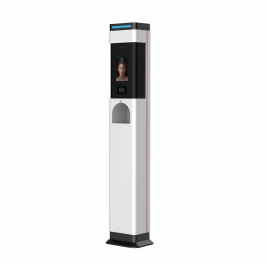The Real Estate Business and COVID-19

Coronavirus has severely affected the global economy. Currently, attention is turning to the ways of adapting, reopening facilities and getting some form of normality. Countries are creating new legislative measures, regulations, and programs to relax lockdown measures and help businesses to survive.
However, despite the precautions governments have taken to mitigate the virus, the economic ramifications could still be devastating for many. As one of the many industries trying to navigate the challenges of COVID-19, real estate has seen a major shift in procedures. Realtors have to respond rapidly to new customers’ demand patterns and navigate the needs of partners, employees, vendors, and guests.
Here, we’re going to discuss the struggle between the real estate business and COVID-19. More importantly, we’ll reveal secrets on how real estate leaders can get ready for the long-term implications and remediate the short-term shocks to ensure their own viability.
COVID-19 Impact On The Real Estate Industry
The real estate market has shifted in the wake of Coronavirus. Although we see some recession for this sector and things won’t get back to where they were pre-pandemic, there are ways to navigate this unique set of challenges. For instance, housing prices haven’t significantly dropped as was expected. Some people have lost their jobs and are looking for the opportunity to downsize, while others upgrade to larger homes. Additionally, the results of recent studies are quite contradictory.
According to the Forbes report, OJO Labs stated that about 80% of potential buyers delayed their housing search. On the other hand, this study showed that people are still browsing through lists of photos and continue to take virtual tours of real estate. The ongoing pandemic leaves real estate agencies, brokers, and agents at the forefront of an unpredictable and dynamically changing market. Despite the uncertainties surrounding the future of the real estate market, there are some key indicators from which realtors and buyers can learn.
- Agents were among the first who experienced changes in the way they perform their job have changed. Because of COVID-19, they had to convert their jobs almost completely to digital interactions. Agencies adapted by offering virtual tours and consultations, leading to considerable success.
- Post-COVID-19 real estate investing was affected too. Within the past several years, real estate investments have created stable cash flow and return substantially above common sources of revenue, e.g., corporate debt, with a little more risks. However, due to the Coronavirus outbreak, this reality has shifted, and the players suffered severely across the value chain. Many developers can’t receive permits, and they face such challenges as construction stoppages, delays, and potentially shortening rates of return. Meanwhile, lots of asset holders and operators have to stand up dramatically reduced operating revenue. Many agencies are worried about tenants struggling to handle their lease payments. “Abatement” and “concession” are becoming buzzwords across demographics.
- Real estate assets perform differently during the ongoing crisis. Assets that see a significant human density - regional malls, healthcare facilities, lodging, student housing, etc. - suffer the most. Many of them have been sold off considerably. However, data centers, industrial facilities, and self-storage facilities haven’t faced a significant decline. Obviously, when colleges send students home, stores avoid crowds, retailers, hotels, and cafes close their doors - purchasing and using these properties doesn’t pay off. Therefore, balance-sheet resilience and liquidity are becoming paramount.
New consumer habits
Crises often change our way of life. Some things change permanently, on both business and personal levels. Due to the Coronavirus pandemic, we see shifts in our approach to social distancing, personal hygiene, and working from home. Authorities and business owners, including real estate leaders, should understand how the ongoing crisis is reshaping society and changing consumer habits. Here are some common consumer habits that have been changing nowadays:
- Price-conscious mindset - the economic downturn can lead lots of people to reduce their consumption and delay significant investments or major buys, e.g., house, automobile, appliances.
- Developed online shopping - due to today’s unique challenges, there has been a major shift to online shopping across the world. The majority of businesses have already responded to this trend, including the real estate industry.
- Focus on dependability - where there is a crisis, there is an opportunity to grow. Products and services that prove to be dependable during the coronavirus pandemic will grow into powerful, indispensable brands. People value their peace of mind, especially during such hard times.
- Focus on the local shops - nowadays consumers are focusing on the local level. They prefer smaller, hometown shops and service suppliers that have a more direct influence on the local community and economy.
- Focus on health and safety - consumers now are leaning towards a healthy lifestyle. This directly impacts their buying habits. People analyze all available info and item cost before making a purchase, especially if it’s a major purchase. All mentioned above shifts impact the real estate sector as well as other spheres. However, there are several changes in consumer habits and behavior that address only the reviewed industry. Let’s discuss them.
- Declining demand for commercial real estate - lots of retailers close their shops, send their employees home, and stop operations. To protect their food business from COVID-19, restaurants and cafes offer door-to-door delivery; commonly busy tourist spots don’t see so many people as before. The bottom line? Businesses are experiencing huge difficulties with paying monthly rent, and companies unlikely to buy, lease or rent commercial estate.
- Focus on rent relief - many business owners ask their real estate brokers to arrange rent relief to keep their companies afloat. Some companies have already been given relief measures, including flexible rental payments, marketing assistance programs, and a rental rebate.
- Impact on residential real estate - as we touched on above, the data about the impact on this sphere is quite contradictory. On the one hand, some think that the influence of COVID-19 won’t spread to residential real estate. On the other hand, some customers are skeptical because of the uncertainty of today’s situation and tighten their purse strings to spend only on essentials, not such a significant purchase as property.
How Real Estate Businesses Should Navigate The Crisis
All companies and organizations are doing their best to overcome the crisis with respect to tenants, employees, and consumers, while also navigating challenging business trade-offs. The majority of real estate leaders struggle to keep the right balance between capital conservation and reinforcement of competitive differentiation.
Within the past few years, real estate leaders have been implementing up-to-date strategies such as digitalization, focus on tenant experience, and more. This helped to diversify sources of income. The ongoing pandemic has only stimulated the need for advanced strategic shifts. Those who haven’t made such upgrades yet will need to overtake quickly, otherwise, they may not survive in the new world.
For instance, if a real estate company during the before-COVID-19 era was actively developing advanced analytics and digital policies, these strategies will really help now, during the ongoing crisis. They’ll ease asset valuation, commercial lease negotiations, assist with tenant attraction, and enhance tenant practice and operations.
Another result of the crisis is the need to strengthen relationships with employees and costumers, support their safety and confidence. Below, you’ll find a set of solutions that real estate industry leaders take to survive their business and engage with their clients and workers.
The priority of health and safety
As companies and organizations start to reopen and return to their spaces, they must prioritize the health and safety of their employees and customers and promote the best standards in this field. According to the IBISWorld study on COVID-19, real estate companies should think about bigger floor layouts, improved building facilities, e.g. lifts, HVAC equipment for better air quality, and new furnishings that will help with social distancing. Also, there is an increased need for more multipurpose living spaces for tenants and open workspaces for in-office cooperation. Industry leaders have to analyze ways on how to realize current and coming tenant needs. This way, they can envisage and plan health and safety improvements.
One of the most important steps to abolish the risk of COVID-19 transmission in buildings and offices is continuously monitoring people’s body temperatures since fever is the first sign of coronavirus infection. The best way to implement it into the practice is by installing smart temperature monitoring systems at checkpoints, entrances, hallways, waiting areas, workplaces of all organizations and companies. Today’s market offers various equipment. But what are the best options?
- Smart kiosks - these tools estimate whether an individual is feverish. The process of monitoring takes seconds, and the result is accurate. Thanks to this device, you’ll ensure that no one with fever-like symptoms unknowingly exposes other people inside the facility to the virus. Additionally, smart kiosks feature a built-in face recognition algorithm, hence, they can be used for employees’ check-ins.
- Smart sanitizing hubs - they have all the same features as smart kiosks, but in addition, they are advanced with built-in hand sanitizer. People can check their temperatures and sanitize hands at a time.
- Thermal cameras - they can monitor vast groups of people and are engineered for high-traffic areas. Such tools can be installed in a big service room, hall, or at the entrance if you don’t want to stop every visitor for monitoring.
These smart devices are true life-savers since they help to detect potentially infected individuals, hence, stop the spread of COVID-19. Other preventative measures that must be taken by everyone to hinder the virus include:
- Keeping personal hygiene - people have to wash and sanitize hands frequently
- Keeping cough and sneeze etiquette
- Avoiding touching the nose, mouth, and eyes with unwashed hands
- Maintaining social distance (approximately 6 feet)
- Wearing a mask or face cover in offices or public places
- Avoiding close contact with anyone who is ill
- Cleaning and disinfecting frequently touched surfaces and objects.
Offices must provide proper conditions so that employees and visitors can keep these rules. Besides, there have to be plenty of posters and reminders with information on how to safeguard oneself and protect others.
Providing technological improvements
Both lessors and lessees will benefit from technological improvements. Thanks to the use of advanced technologies, real estate companies will be able to run business and assets more effectively. There are such technological improvements as property management software, it can help in assessing various data and industry trends. It also reduces additional overhead costs and automates lots of daily business processes.
The right software enhances landlord and tenant relationships and helps landlords to understand better their occupants’ needs at a time they become apparent. On the other hand, tenants will be able to interact efficiently with their landlords. Both parties will keep an open line for communication, which is crucial during the time of rapid changes.
Realizing new needs of lessees
As strict lockdown measures and social distancing emerged, the majority of lessees began to use video-conferencing, remote-work strategies, and communicate digitally with their customers, employees, and partners. Plenty of business owners realized that they could run their companies and stay productive through the use of technology.
Now, when lessees are adjusting to the new normal, many are negotiating with their landlords to reevaluate their lease contracts so that they align with the new business needs and aims. It can be a moderate modification of the current agreement; however, lessees often see the need to make a completely new contract.
Lessors should be flexible enough and find ways to accommodate current and prospective lessees’ needs. It’s vital to keep up with the changing industry. Besides, it’s a good opportunity to build strong, trust-based relationships. Real estate leaders should note that the demand for space won’t disappear, but it’ll be quite different based on the new situation, needs, and preferences.
Rethinking the real estate perspectives in the future right now
Some industry leaders are thinking and modeling the situation with real estate business ahead to the post-Coronavirus era when the crisis is over. They try to understand how real estate usage will shift going forward. The forward-looking industry leaders are appealing to various specialists like sociologists, psychologists, futurists, and technologists for responses. However, they also consider customer-survey-driven and traditional economic approaches to get a comprehensive insight into the ongoing situation and future perspectives.
Will workers need more spacious workspaces? Will people decide not to live in condos or block of flats because of fear to ride lifts? Real estate leaders are trying to answer these and other critical questions. It’s a good idea to use new methodologies, e.g. deep design interviews, this way business owners have the opportunity to find new and more predictive conceptions.
Final thoughts
As the saying goes “Don’t waste a good crisis,” since it generates new opportunities to adapt and grow. Lots of business owners will have to make hundreds of decisions for this unique situation; they have to be innovative and open-minded. How will the real estate landscape change in the future? How to alert strategies? These questions must be at the forefront all the time!
Those who succeed in restoring positions through the crisis will prosper, plus, deepen relationships with their investors, partners, clients, employees, and other stakeholders. Industry leaders should also remember that it’s vital to actively take care of people and the environment while strengthening trust and security into everything they do. It’s an important lesson that we all have learned from the Coronavirus pandemic. So, let’s arm ourselves with such critical things as hand sanitizers, face coverings, and smart temperature readers. New knowledge and technologies will help us to live and thrive in the post-COVID-19 era.





